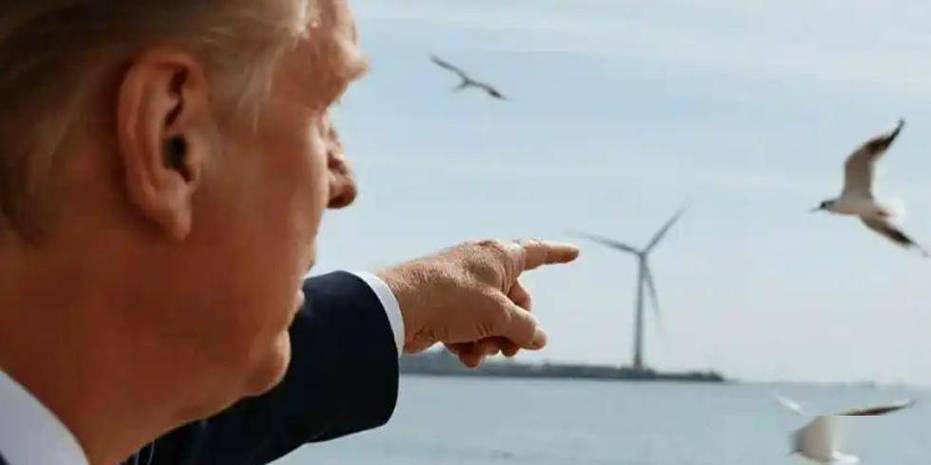
The 2024 US presidential election will undoubtedly have a profound impact on the global economic landscape, especially on the US's main trading partners - Europe. Regardless of the outcome, the election could bring a series of challenges and uncertainties to the European economy. This article will analyze the potential impact of the US election on the European economy and discuss it from various angles, including trade, defense and security, and climate policy.
The outcome of the US election will directly affect the trade relationship between the US and Europe. There are significant differences in trade policies between Trump and the Democratic candidate (assuming it is Harris, but the actual candidate may be different). Trump is inclined towards protectionism and has threatened to impose high tariffs on all imported goods, including those from EU countries. If this policy is implemented, it will cause a huge impact on the European economy. The trade volume between the EU and the US is huge, and Trump's tariff policy will directly affect over 1 trillion euros of EU-US trade, which could result in a 1% reduction in eurozone economic output, higher than the current 0.8% growth expectation.
In contrast, if Harris is elected, she may continue the trade policies of the Biden administration, although this does not necessarily mean that Europe will receive substantial benefits. At least, it can avoid a trade war like that of Trump. However, no matter who is elected, European businesses face the risk of the US tightening export restrictions, which may cause serious blows to European businesses that rely on the US market.
The outcome of the US election will also have a significant impact on Europe's defense and security spending. During the campaign, Trump criticized NATO members for not meeting the target of 2% of GDP for defense spending and threatened to reduce US military support for these countries. If Trump is elected, he may exert pressure on European NATO members through a series of measures to force them to increase defense spending. This may include reducing the number of US ground troops, cutting related spending, and even withdrawing from joint exercises, thereby forcing European countries to be more independent in defense.
Such pressure will increase defense spending in European countries, placing an additional burden on already strained European finances. At the same time, Trump may also reduce support for Ukraine, forcing Europe to take on more of the defense responsibility in the Ukraine crisis. This will further exacerbate security concerns and pressure on defence spending in Europe.
When it comes to climate policy, Trump and the Democratic candidates' positions are starkly different. Trump has promised to withdraw from the Paris Agreement, an international climate change treaty, and invest in fossil fuels. If elected, Trump could slow down subsidies for investments in renewables, batteries and electric vehicles (EVs), which would pose an upside risk to European investment in green technologies and renewable energy. For the EU, losing the US as an ally in the fight against climate change would be a serious blow, as it could jeopardise global efforts to avoid temperatures reaching a tipping point.
By contrast, if Harris is elected, she is likely to continue the Biden administration's climate policies, continuing to support the development of green technologies and renewable energy. This will help Europe align itself with the United States on climate policy and jointly advance global efforts to combat climate change.
The outcome of the US election will also add to economic uncertainty in Europe. The election of Mr Trump, known for his unpredictable policies and rhetoric, would trigger a spike in uncertainty in markets, adding to risk aversion. This uncertainty will have a negative impact on investment and consumption in Europe, leading to slower economic growth.
In addition, Trump's trade protectionist policies may also trigger a global trade war, further aggravating global economic uncertainty. Against this backdrop, European companies need to plan for the future more carefully to cope with possible market turbulence and policy changes.
In summary, the outcome of the US election will have a profound impact on the European economy. Trump's election will increase the risk of trade protectionism, increase pressure on defense and security spending, and change the course of climate policy. These changes will pose challenges to economic growth, jobs and market stability in Europe. By contrast, if a Democratic candidate is elected, it may not bring substantial benefits, but it can at least avoid a Trump-style trade war and policy uncertainty.
Therefore, Europe needs to pay close attention to the outcome of the US election and develop a response strategy to deal with the challenges and opportunities that may arise. At the same time, Europe also needs to strengthen internal solidarity and cooperation to jointly cope with uncertainties and risks in the global economy. Only in this way can Europe remain competitive and sustainable in the future global economic landscape.

On December 22, 2025, the Trump administration suddenly announced the suspension of all five ongoing offshore Wind power projects on the US east coast, citing "national security risks", including key projects such as Vineyard Wind 1 in Massachusetts and wind power on the Virginia coast.
On December 22, 2025, the Trump administration suddenly ann…
On December 22 local time, the eighth flight of Japan's new…
Since the beginning of this year, the Trump administration'…
President Trump has faced scandals, impeachment, investigat…
The EU economy on Christmas Eve 2025 presents a complex pic…
India has committed to providing 450 million US dollars in …